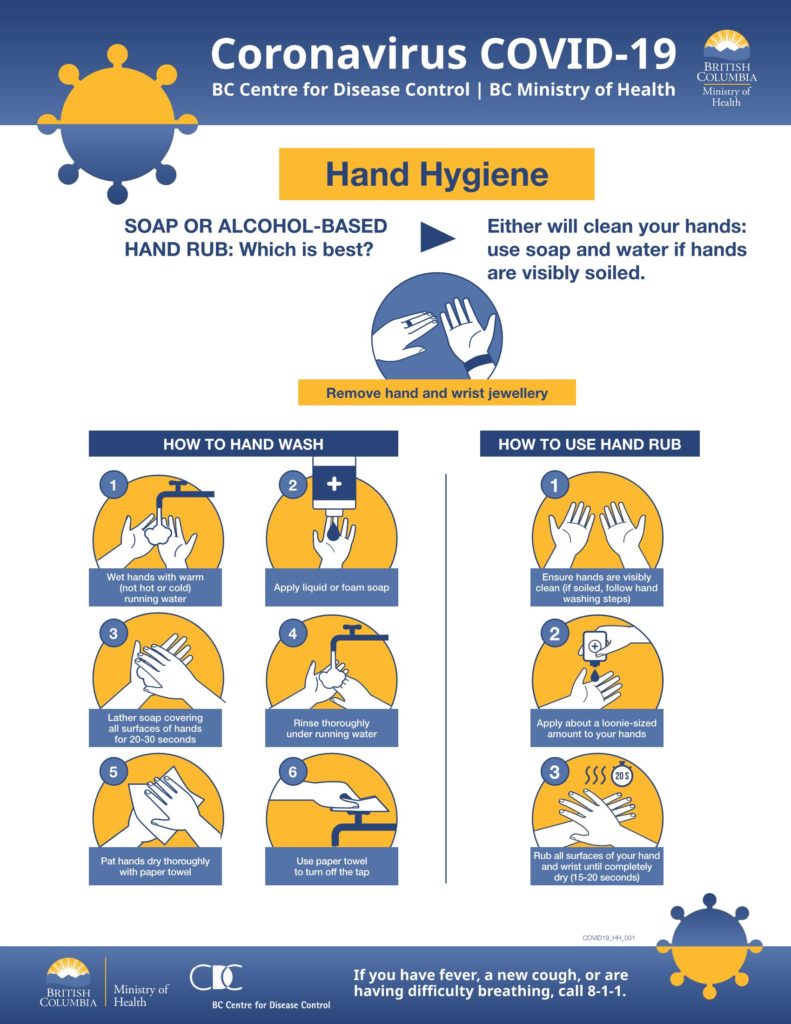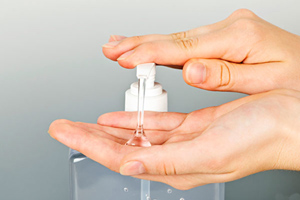Sunday March 22, 2020 ~ BC
by Mary Brooke ~ West Shore Voice News
Public health officials say the best way to prevent the transmission of COVID-19 is by thorough handwashing with soap and water, scrubbing for at least 20 seconds.
Meanwhile, today the BC Ministry of Agriculture announced that the government is ramping up the manufacture of hand sanitizer in BC as part of combating the COVID-19 pandemic.
The Ministry has temporarily authorized distillers in BC to manufacture alcohol-based hand sanitizer, through an updated policy directive from the Liquor and Cannabis Regulation Branch (LCRB).
“We are in unprecedented times and everyone must do their part to fight COVID-19,” said David Eby, Attorney General, in a Sunday news release. “Distilleries have been approaching us asking how they can help, and this new policy directive will mean they are authorized to manufacture alcohol-based hand sanitizer.”

Previously, distilleries and other licensed manufacturing establishments would have required discretionary authorization from the general manager of LCRB in order to produce alternative products. However, given the context of the current provincial health emergency related to COVID-19, the general manager is now permitting all distillers to produce alcohol-based hand sanitizer. Hand sanitizers must meet certain federal regulatory requirements.
Some distillers are donating the “excess alcohol” from their distilling process to a third party that can produce hand sanitizer. Others are producing the hand sanitizer themselves, taking steps to ensure products contain the necessary level of alcohol content to make them effective. Distillers will be able to donate or sell the hand sanitizer they have manufactured, and the authorization will be reviewed on an ongoing basis as the provincial health context changes.
“The flexibility shown by distillers to create much-needed hand sanitizing products demonstrates the leadership of B.C.’s agriculture sector and highlights the additional and unforeseen roles that B.C.’s food and beverage producers can play in an emergency response,” said Lana Popham, Minister of Agriculture.

“B.C.’s food and beverage sector has so much to offer, and these displays of businesses changing their operations to help British Columbians in our time of need emphasizes the value each of us add to our communities every time we Buy BC,” she said in today’s news release.
Types of Hand Sanitizer
- Alcohol-based: With ethyl alcohol as an active ingredient and works as an antiseptic. (The U.S. Food and Drug Administration and the Centers for Disease Control recommend ethyl alcohol, isopropyl alcohol, or a mix of both in a concentration of 60% to 95%.) Other ingredients could include water, fragrance, and glycerin. [Note: There can be alcohol poisoning from too much exposure to alcohol through the skin].
- Non-alcohol based hand sanitizers contain an antibiotic compound called triclosan or triclocarban. This ingredient can also be found in soaps and even toothpaste. These products are often labeled antibacterial, antimicrobial, or antiseptic soaps. [Note: the triclosan in large amounts can lead to antibiotic resistance, alcohol poisoning, hormone disruption, weaker immune system, endocrine disruption (from the phthalates in synethetic fragrances).
===== Learn More:



